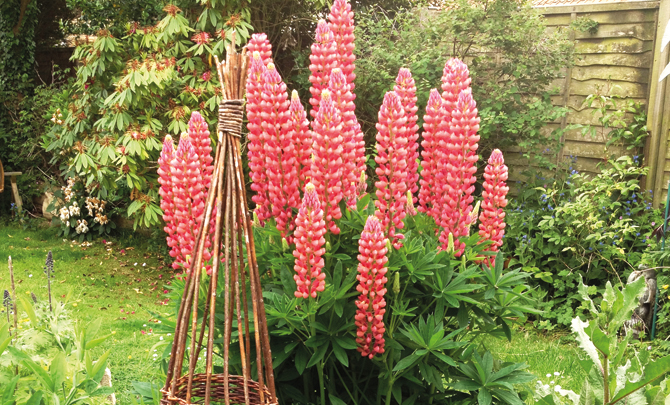The Continuity Garden - Reform Magazine
A garden can give us more help dealing with death than theological wishful thinking, finds Ian Fosten
For more than 30 years I have carried out countless bereavement visits and funerals as part of my pastoral ministry. I have been moved, humbled, challenged, and sometimes deeply disturbed, by people’s responses to dying, death and questions of eternity. These days, the sharpness of my own response is honed each morning as the face that stares blearily out from the bathroom mirror reminds me that the fresh-faced youth I was once is a somewhat distant memory. Whenever I walk the clifftop path near my home, I am intrigued and, if I am to be honest, sometimes irked, by the impromptu shrines of fading flowers, balloons and other memorabilia tied to benches and bushes in honour of people long dead but clearly not forgotten.
Today, I find that I am no longer able to brush off hearty, well-meant speculations about the geography and activity of heaven as harmless wishful thinking –“Old Bill will be up there now tending God’s vegetable plot”, or “Little Grace will be playing happily with all the other small children who went to be with Jesus prior to reaching double figures on Earth” – without yearning for a better and more honest way of dealing with these issues. At the same time, the increasingly popular stance of both non-believers and some Christians, that this life is all that there is, seems inadequate and absurd. An intuitive sense of human purpose, and the testimony of Christian understanding and experience, compel me to find a language with which to speak of death and eternity with conviction and not embarrassment, and without the need to request that hearers suspend rational thought for this topic of conversation. As a result, I’ve come to realise that in this territory where so little can be known, to say less speculatively is to say more helpfully.
When my mother died two years ago, I felt no strong need to retain many physical mementos of her life or of the family home that my parents had shaped for nearly 60 years. What I did feel moved to conserve were some token elements from the garden. It was only ever an ordinary suburban back garden, and yet it was populated with so many memories – of the games we played there as children, of plants and shrubs which had arrived as gifts or cuttings or thank yous for some kindness shown, and of the last mortal remains of both parents, rescued from the bleak sterility of a crematorium and interred discretely amongst the roots of a favourite tree. On our last visit to the house before it was to be sold, I hastily dug up some late autumn remnants. At home in Lowestoft, I planted these unpromising specimens in a part of our garden recently laid waste by building work…
___
This article was published in the February 2014 edition of Reform.












Submit a Comment